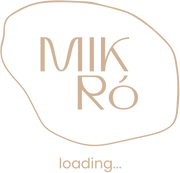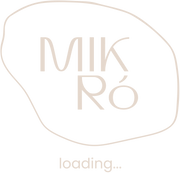If you are new mum these two little words are probably echoing in your mind.
Those two little words..."Tummy Time"
You hear of those babies where tummy time is effortless. It comes naturally. As soon as they are popped on you / the floor they lift their heads and look around.
But for some babies, it is everything but effortless. And for their caregivers, the distress and difficulty that comes with tummy time, is enough to provoke anxiety.
There is the guilt that you are never doing enough. That you didn’t start early enough. The belief that somehow the reason your baby doesn’t like, no hates tummy time, is your fault.
Well let me reassure you, it’s not.
Your baby’s head is huge. Well proportionately to its body size. At birth the head is one-fourth of the total body length, as an adult its one seventh. That’s a lot to lift. Especially when the have just come from floating in the anti-gravity womb. It takes time for muscles to adapt to gravity.
Its bloody hard work lifting that head.
“Tummy Time” is a concept – it was introduced in the early 90’s after the very successful “Back to Sleep” SIDS campaign that saves countless lives. However health professionals noticed an increase in head flattening (plagiocephaly) and later shift in motor development, as bubs started to spend their aware and asleep time on their back. Hence “Tummy Time” was introduced as a way to increase the variety in bubs awake positions and prevent plagiocephaly / motor delay.
So if tummy time works for you, that’s great. Keep doing it! Add in some side play too, and back play, all positions are important to help bub move and explore their bodies.
But if tummy time isn’t going great? Don’t’ sweat it. Let’s explore the alternatives. Let’s step back from “tummy time” and towards play & connection. Here are some examples and easy, practical suggestions on how you can support bub to build their little muscles, head control and motor development. All of which may make tummy time easier and more enjoyable.
Rotation
Add rotation in the way you pick up your baby. This may help build head control, and better head control may make tummy time easier.
Face time
Whilst the emphasis from many health professionals is on tummy time, face time, making eye contact, chatting and connecting with baby is important. The Royal Children's Hospital Melbourne has a whole fact sheet dedicated to the importance of Face Time in developing head control – click link here.
Face time can be on your chest on their tummies or even nested in your lap or arms. Understanding your baby and they way they communicate will also help you to know when they have had enough. Don’t watch the clock, let your baby guide you. We all know bubs tolerances change hour to hour, day to day, week to week and play will be more enjoyable for both of you if use bubs cues to guide how long you play in positions.
Avoiding the superman drop
Can you imagine falling face first, like a superman or a skydiver towards the ground? This can be overwhelming for some babies when you are putting them in Tummy Time. It might be more helpful to gently roll them over from their back to their tummy.
Side lying
This is often forgotten position, is in my opinion, wonderful. Bub can bring their hands together. Work their side muscles. Kick their top leg around. It takes pressure off the back of their head. Give it a go!
Surface matters
It can be hard for bub to lift that huge, heavy head. So lets make it easer. Give them a bit of incline! Your chest, a pregnancy wedge, across your lap, and prop those little elbows underneath their shoulders.
If you do pop bub on the floor, a soft but firm surface, such a Mikro' Australia playmat, can make all the difference. I also love that these mats are waterproof. Easy to wipe off baby spew, great for water play and they grow with your bub. It is a staple in our play area.
If it’s really hard and distressing? Seek help. Your GP, child health nurse or paediatric physio can be a great support.
You can also follow along with me @nicole_kidsphysio on Instagram. I am launching a membership called "The Baby Play Academy" to support mammas in purposeful play and baby development at the start of April 2021. I would love to see you there!
Nicole Pates, APA Titled Paediatric Physiotherapist, Western Kids Health


